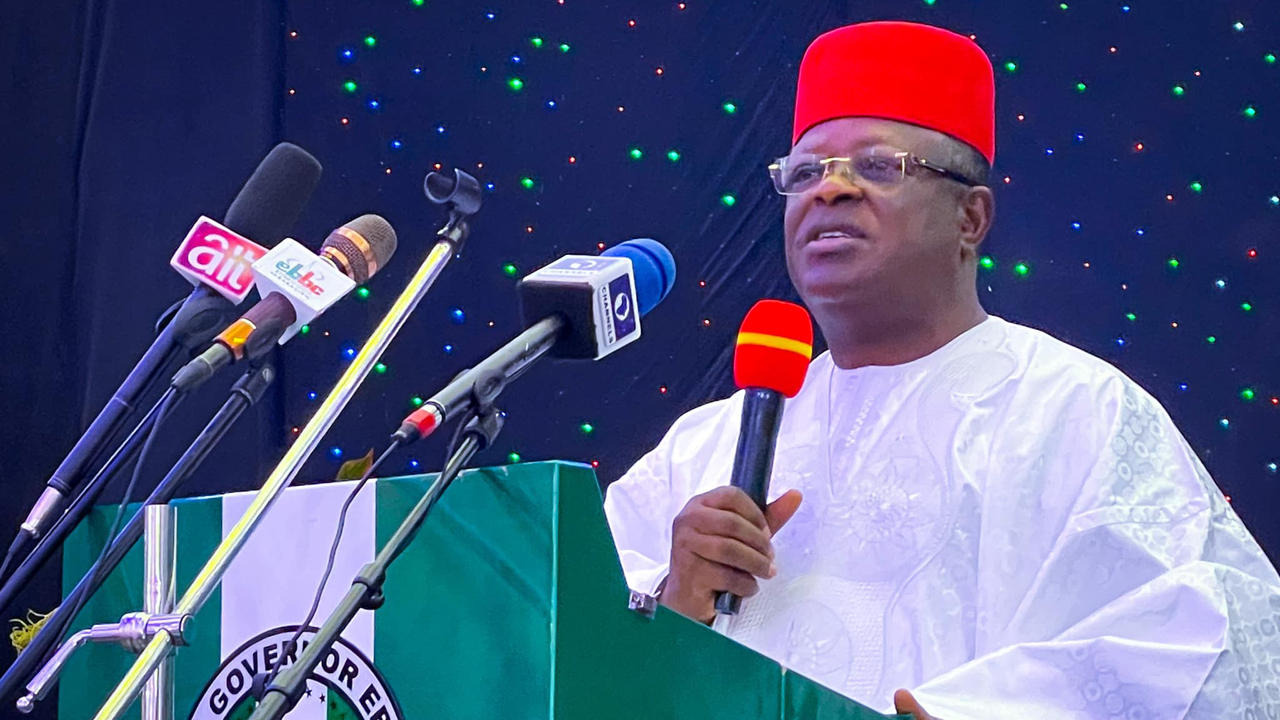
The Minister of Works, David Umahi, disclosed this in a statement issued by his Special Adviser on Media, Orji Uchenna, in Abuja
This is coming one week after the Federal Executive Council approved a contract worth N1.067 trillion for the first phase of the highway’s construction.
The works minister, addressing journalists after the council meeting, said the 47.47km dual carriageway has five lanes on each side and a train track in the middle. Umahi explained that it forms part of the 700km road spanning nine states, with two spurs leading up north, noting that the facility will be constructed with concrete.
He said the highway to be constructed using concrete technology will start from Lagos through the nine coastal routes or states up to Cross Rivers, meaning that it goes to Lagos, the Lekki Deep Seaport, Ogun, Ondo, Delta, Bayelsa, Rivers, and Akwa Ibom.
Though the project was initially franchised on a public-private partnership, the paucity of funds on the contractor’s part made the minister seek the executive council’s approval to award the project.
Recall that the minister on Tuesday initiated a discussion with the African Development Bank on possible financing mechanisms to hasten the delivery of the project.
In the statement, the special adviser noted that the contractor kickstarted the project after the official handover of the first phase of the project, made up of 47.47 kilometres of dual carriageway, to Hitech Construction Company Ltd.
Umahi, who was in company with the Federal Ministry of Works’ Controller in charge of Lagos State, Engr. Olukorede Keisha, stressed the need for contractors handling Federal Government road projects to deliver within record time, noting that the government would not allow delays or slow pace once mobilisation has taken place.
He, however, highly commended Hitech Construction Company Nigeria Ltd. for being reputable for quality and speedy delivery of jobs. He acknowledged their efforts in start work immediately after the contract was awarded.
He said, “They have completed some filling of 1.3 kilometres from the day the project was awarded to them. It shows the speed they are going to deploy this project. Within a couple of weeks, we awarded the project to them, they mobilised a lot of dredging equipment, and you can see that they have recovered 1.3 kilometres of section one of the phase.”
According to the statement, the former Ebonyi governor visited project sites at the Queen’s Drive Ikoyi, the Third Mainland Bridge top deck, the underwater, the Eko Bridge and the Carter Bridge and expressed the determination of the Federal Government to carry out a comprehensive rehabilitation of the bridges which he said are critical links between the Mainland and the Island of Lagos, the economic hub of the country. These repairs are expected to cover not only the top of the bridge but also the under-bridge works.
He said, “At the Third Mainland bridge, we have three or four critical elements to be rehabilitated. The first one is the deck, and the deck is about 11 kilometres. That is a dual carriageway, including the ramps, and it has been done by CCECC. They have done very beautiful jobs, but we have not concluded. Before the end of March, we’ll be concluding the asphalt milling and the asphalting.
He further stated, “But that is not all our commitment there. We are installing the guardrails, we are replacing the lights with solar lights, we are going to put some decorative lights too, and then we are going to put CCTV cameras both on top and under the bridge to check insecurity and illegal mining of sand, which is causing scouring on the piles and the pipe bits. The second job is that some sections of the slab are deflected, so we have gotten an expert to understudy the level of deflection.
“That’s the tendons of the slab that deflected. And so we are going to cut open the slabs, enter and then look at it, scoop it, and then reinstate the tendons of the slab. There’s nothing to worry about. It’s been done at an Eko bridge by Buildwell. So this one is not a threat to us at all.”
He commended what Julius Berger Nigeria Ltd. is doing already, which is the restoration of deteriorated piers and pier caps, and said the piles, which he also inspected, were the most critical of the work to be done.





